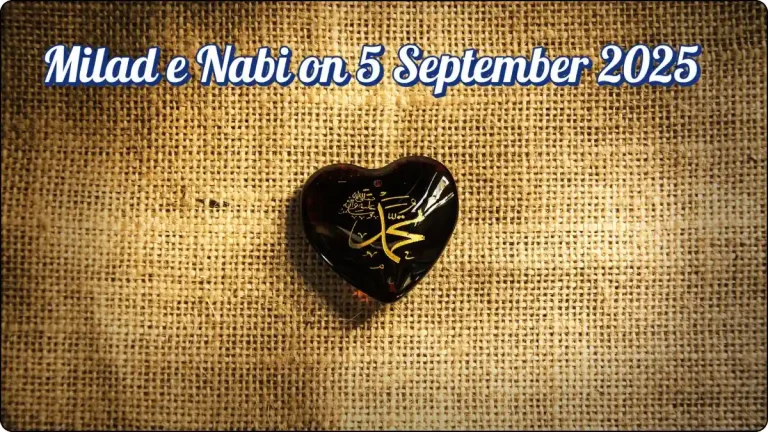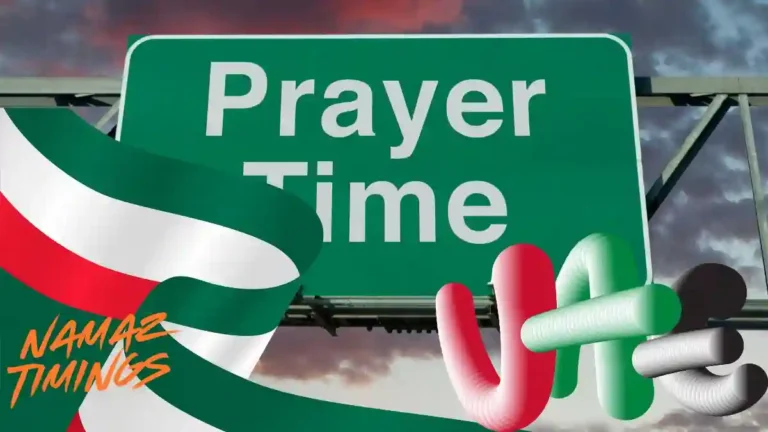Ramadan
Ramadan: The Universal Month of Fasting for Muslims Worldwide Ramadan, the ninth month of the Islamic lunar calendar, holds immense spiritual significance for Muslims worldwide. It is a month of fasting, prayer, self-reflection, and devotion to Allah. The practice of fasting during Ramazan, known as Sawm, is one of the Five Pillars of Islam and…
Ramadan: The Universal Month of Fasting for Muslims Worldwide
Ramadan, the ninth month of the Islamic lunar calendar, holds immense spiritual significance for Muslims worldwide. It is a month of fasting, prayer, self-reflection, and devotion to Allah. The practice of fasting during Ramazan, known as Sawm, is one of the Five Pillars of Islam and is observed by Muslims as a means to purify the soul, develop self-discipline, and grow closer to Allah.
Fasting during Ramadan begins on the 1st of the Islamic month, marked by the sighting of the new moon. The Saudi government officially announces the moon sighting, which is followed by many Muslim countries. Fasts begin daily at dawn (suhoor) and end at sunset (iftar). Ramadan ends with Eid ul Fitr.
Overview of Ramadan and Its Importance in Islam
Ramazan commemorates the first revelation of the Quran to the Prophet Muhammad (PBUH) through the angel Jibreel (Gabriel). Fasting during this holy month is a form of worship that allows Muslims to empathize with the less fortunate, foster gratitude, and cultivate spiritual resilience.
ramadan fasting times
From dawn (Fajr) to sunset (Maghrib), Muslims abstain from food, drink, smoking, and immoral behaviors. The pre-dawn meal is called Suhoor, while the meal to break the fast at sunset is called Iftar. Throughout the month, Muslims dedicate themselves to increased prayers, recitation of the Quran, giving charity (Zakat and Sadaqah), and seeking forgiveness for their sins.
The culmination of holy month is marked by Eid al-Fitr, a festive celebration where families and communities come together to enjoy feasts, exchange gifts, and give Zakat al-Fitr, a special charity to the needy.
Ramadan in the UAE
In the United Arab Emirates, month of fasting is observed with reverence and a deep sense of community. The country adapts to accommodate the spiritual needs of its residents during this sacred month. Working hours are reduced, and a tranquil atmosphere prevails as businesses, schools, and government offices operate on shortened schedules.
Iftar tents are a prominent feature in the UAE during month of fasting. These tents, often set up by mosques, organizations, and hotels, provide free meals for those breaking their fast. Streets come alive after sunset as families and friends gather for Iftar in homes or restaurants, followed by Taraweeh prayers performed in congregation at mosques.
Shopping malls and markets remain open late into the night, offering a unique Lunar Fasting Month experience with special discounts, decorations, and activities for children. The generosity of Emirati culture shines through as residents and visitors alike participate in charity drives and community programs.
Fasting Hours During Ramadan
In the UAE, fasting hours vary slightly each year depending on the lunar calendar and the timing of sunrise and sunset. Muslims begin their fast with Suhoor, which ends before the Fajr prayer, and break their fast with Iftar at Maghrib. The exact times are announced daily by local mosques and media.
The Ramadan table in the UAE reflects a blend of spirituality, culture, and community, making the holy month a profound and memorable experience for all who partake.
The table highlights the times of fasting in Ramadan, guiding Muslims on when to begin and break their fast each day, ensuring timely and disciplined observance.

“Ramadan Fasting Timetable in the UAE
| Date | Day | Islamic Date | Sehri سحری | IFTAR افطار |
|---|---|---|---|---|
| 11 | Monday | 1 | 5:05 am | 6:29 pm |
| 12 | Tuesday | 2 | 5:04 am | 6:30 pm |
| 13 | Wednesday | 3 | 5:03 am | 6:30 pm |
| 14 | Thursday | 4 | 5:02 am | 6:31 pm |
| 15 | Friday | 5 | 5:01 am | 6:31 pm |
| 16 | Saturday | 6 | 5:00 am | 6:31 pm |
| 17 | Sunday | 7 | 4:59 am | 6:32 pm |
| 18 | Monday | 8 | 4:58 am | 6:32 pm |
| 19 | Tuesday | 9 | 4:57 am | 6:33 pm |
| 20 | Wednesday | 10 | 4:56 am | 6:33 pm |
| 21 | Thursday | 11 | 4:55 am | 6:34 pm |
| 22 | Friday | 12 | 4:54 am | 6:34 pm |
| 23 | Saturday | 13 | 4:52 am | 6:35 am |
| 24 | Sunday | 14 | 4:51 am | 6:35 pm |
| 25 | Monday | 15 | 4:50 am | 6:35 pm |
| 26 | Tuesday | 16 | 4:49 am | 6:36 pm |
| 27 | wednesday | 17 | 4:48 am | 6:36 pm |
| 28 | thursday | 18 | 4:47 am | 6:37 pm |
| 29 | Friday | 19 | 4:46 am | 6:37 pm |
| 30 | Saturday | 20 | 4:45 am | 6:38p m |
| 31 | Sunday | 21 | 4:44 am | 6:38 pm |
| 1 | Monday | 22 | 4:42 am | 6:39 pm |
| 2 | Tuesday | 23 | 4:41 am | 6:39 pm |
| 3 | Wednesday | 24 | 4:40 am | 6:39 pm |
| 4 | Thursday | 25 | 4:39 am | 6:40 pm |
| 5 | Friday | 26 | 4:38 am | 6:40 pm |
| 6 | Saturday | 27 | 4:37 am | 6:41 pm |
| 7 | Sunday | 28 | 4:36 am | 6:41 pm |
| 8 | Monday | 29 | 4:35 am | 6:42 pm |
| 9 | Tuesday | 30 | 4:33 am | 6:42 |
The table clearly outlines fasting times Ramadan observers follow daily, helping them accurately begin suhoor and break their fast at iftar, maintaining spiritual rhythm and community unity throughout the holy month.
The fasting time for Ramadan is officially announced by the local government based on the sunset and sunrise in each specific area. These accurate timings help ensure that all individuals observing the fast follow a uniform and spiritually aligned schedule, reflecting both religious devotion and adherence to local astronomical observations.
Fasting time Ramadan schedules in each region varies with sunset. Muslims follow the sunset for opening their fast, as the fasting time Ramadan ends with the call to Maghrib prayer, marking the start of iftar.







